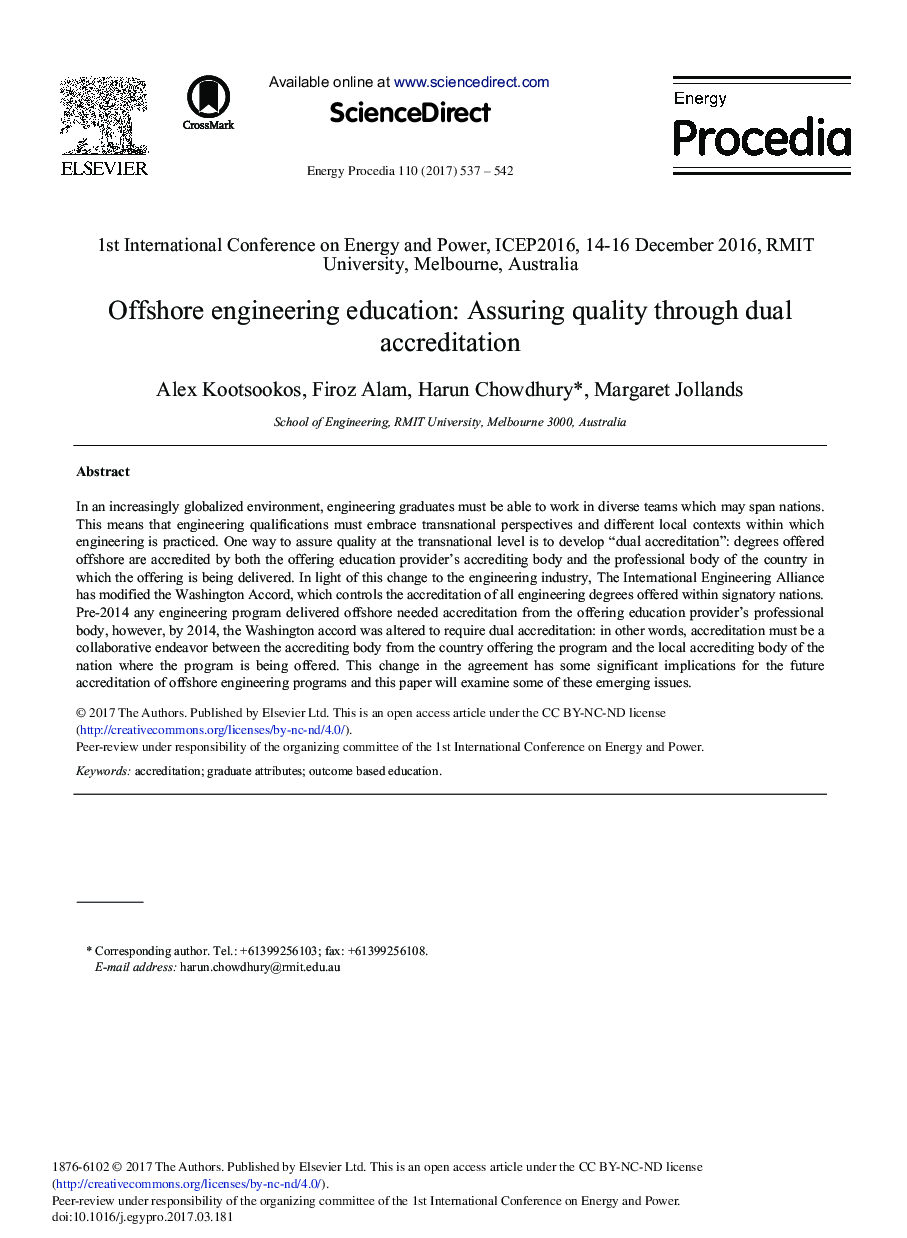| Article ID | Journal | Published Year | Pages | File Type |
|---|---|---|---|---|
| 5445780 | Energy Procedia | 2017 | 6 Pages |
Abstract
In an increasingly globalized environment, engineering graduates must be able to work in diverse teams which may span nations. This means that engineering qualifications must embrace transnational perspectives and different local contexts within which engineering is practiced. One way to assure quality at the transnational level is to develop “dual accreditation”: degrees offered offshore are accredited by both the offering education provider's accrediting body and the professional body of the country in which the offering is being delivered. In light of this change to the engineering industry, The International Engineering Alliance has modified the Washington Accord, which controls the accreditation of all engineering degrees offered within signatory nations. Pre-2014 any engineering program delivered offshore needed accreditation from the offering education provider's professional body, however, by 2014, the Washington accord was altered to require dual accreditation: in other words, accreditation must be a collaborative endeavor between the accrediting body from the country offering the program and the local accrediting body of the nation where the program is being offered. This change in the agreement has some significant implications for the future accreditation of offshore engineering programs and this paper will examine some of these emerging issues.
Keywords
Related Topics
Physical Sciences and Engineering
Energy
Energy (General)
Authors
Alex Kootsookos, Firoz Alam, Harun Chowdhury, Margaret Jollands,
